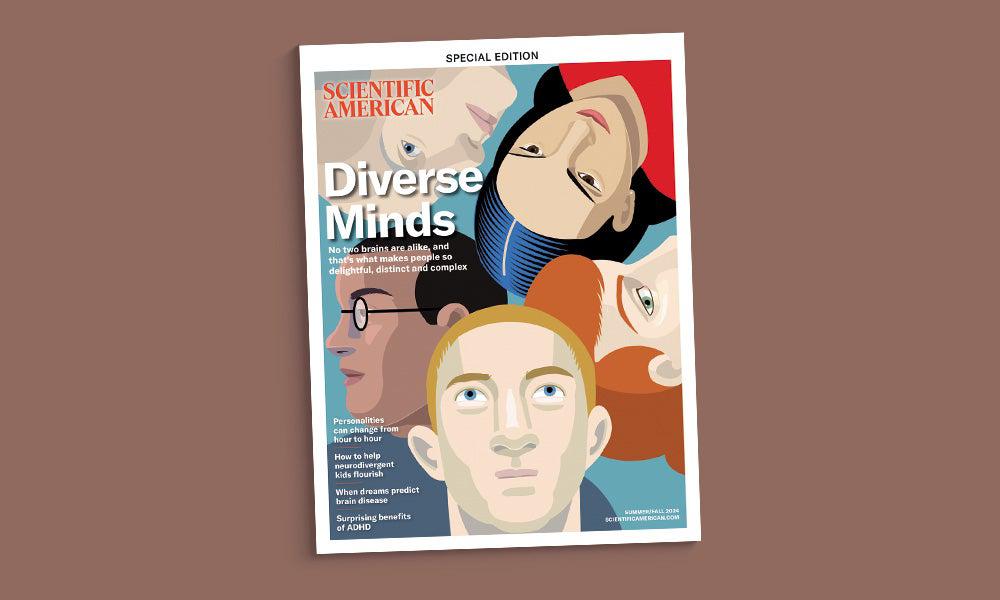
Cover of the Q3 special edition of Scientific American, Diverse Minds.
2024-09-03 526词 中等
Brains learn in many ways, even through late adulthood. Constructive feedback (rather than rote corrections) on schoolwork employs young minds as agents in their own learning. Neuroscientists and educators teamed up to show that lessons in map reading and other spatial skills boost verbal thinking in high school students. New views on how to evaluate and support kids with dyslexia and dyscalculia—like dyslexia, but with numbers—are energizing research into the different ways that brains process information. The better children understand how their minds work, the more enthusiastic they are about learning and the more academic success they achieve.
免责声明:本文来自网络公开资料,仅供学习交流,其观点和倾向不代表本站立场。